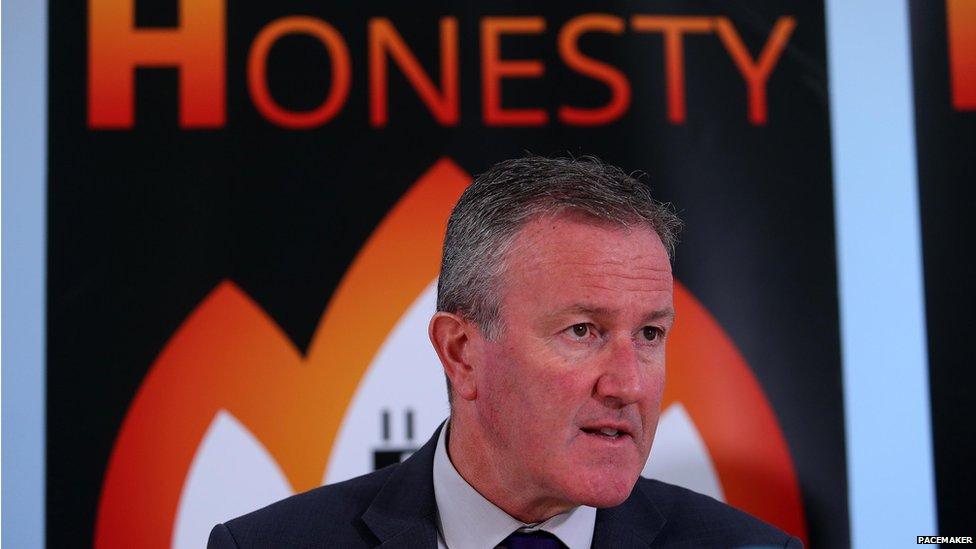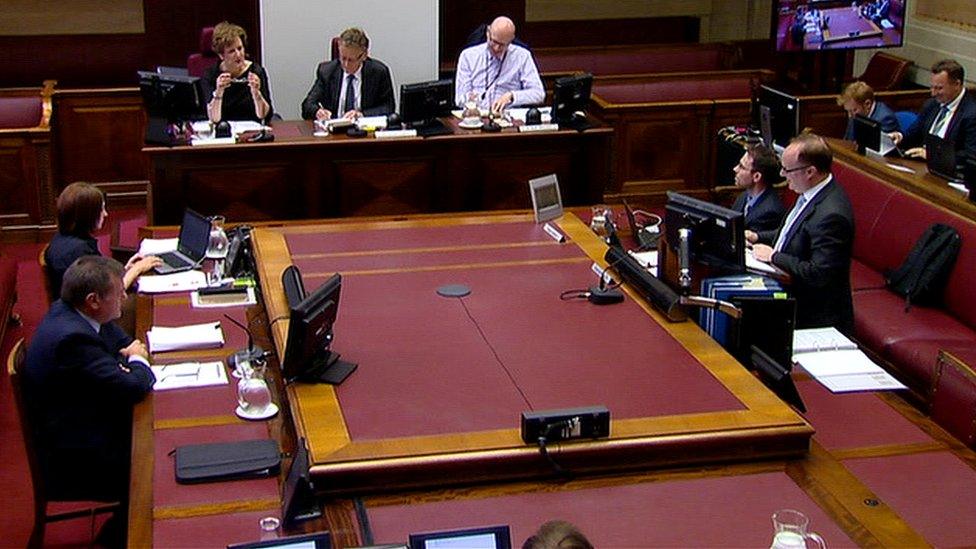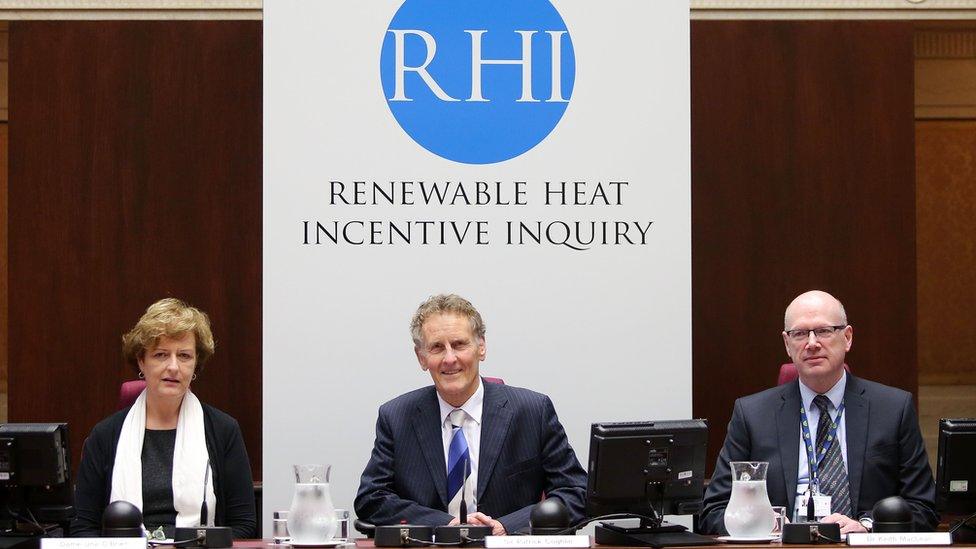Sinn Féin calls for closure of RHI scheme
- Published

Sinn Féin's Conor Murphy said the RHI was 'fundamentally flawed'
Sinn Féin has called for the closure of the RHI scheme claiming it is "fundamentally flawed".
The call came in the party's response to a public consultation on its future and is likely to further strain relationships with the DUP.
Clashes between the parties over the issue contributed to the collapse of devolved government.
A public inquiry into the failed green energy scheme resumes next week.
Sinn Féin MLA Conor Murphy, who is a former executive minister, said: "The RHI is not a good scheme that went wrong, it's a bad scheme that was made even worse.
"Spending more public money on a scheme which was at best ineffective and at worst counterproductive to the goal of carbon reduction could not be justified."Sinn Féin calls for RHI closure
He said legitimate users should be compensated for installation costs, which the party estimates would total £6m.
Asked why Sinn Féin does not go back into government to put its idea into practice Mr Murphy insisted there were quite a lot of things that need to be put right before the institutions could work again.
The Newry and Armagh MLA said "explosive" evidence could be revealed by the RHI Inquiry.
The inquiry was set up after the scheme's costs spiralled.
It has heard claims that some applicants installed wood pellet boilers simply to maximise subsidy payments after realising the subsidy was higher than the fuel price.
It led to a huge commitment of public funds to honour lucrative payments guaranteed to applicants for 20 years.

The inquiry is investigating the flawed green energy scheme
A series of high profile witnesses are expected to give evidence in the inquiry's final phase.
They include former DUP MLA Jonathan Bell, who was economy minister when Renewable Heat Incentive was forced to close in February 2016.
He has claimed he was made a scapegoat by former party colleagues who wanted to protect their leader Arlene Foster from a mounting scandal over the massive projected cost.
'Cash for ash'
Mr Bell is due to give evidence next Thursday and Mrs Foster is also expected to testify again in the coming weeks.
She was economy minister when the scheme was devised, launched and run.
The inquiry has heard she didn't read the regulations covering it and relied on her special adviser to keep across detailed technical documents, something he didn't do.
She left the department in 2015 just as growing demand coupled with the "cash for ash" subsidy flaw drove up the projected spend.
Also before the inquiry in September are a series of DUP special advisers Mr Bell accused of conspiring against him.
They have denied the accusations.

The RHI Inquiry panel is made of up of Sir Patrick Coghlin (centre), Dame Una O'Brien and Dr Keith MacLean
The RHI scheme collapsed amid political scandal as the projected cost to Northern Ireland's taxpayers spiralled to hundreds of millions of pounds over its lifetime.
It was one of the reasons cited by Sinn Féin when it pulled out of the Executive in January 2017.
As well as calling for the closure of the scheme Sinn Féin said it wants public money recouped from anyone proven to have abused it, though that could be difficult to establish.
At one point the economy department projected the cost of the scheme to Northern Ireland taxpayers could be as much as £700m, though that figure has been disputed by a group representing boiler owners.
RHI is now back on budget after temporary cost controls in 2017 dramatically cut subsidy rates.
The department is running a public consultation on the long-term future of the scheme.
It is due to close on 6 September.
- Published23 October 2019

- Published7 November 2017
